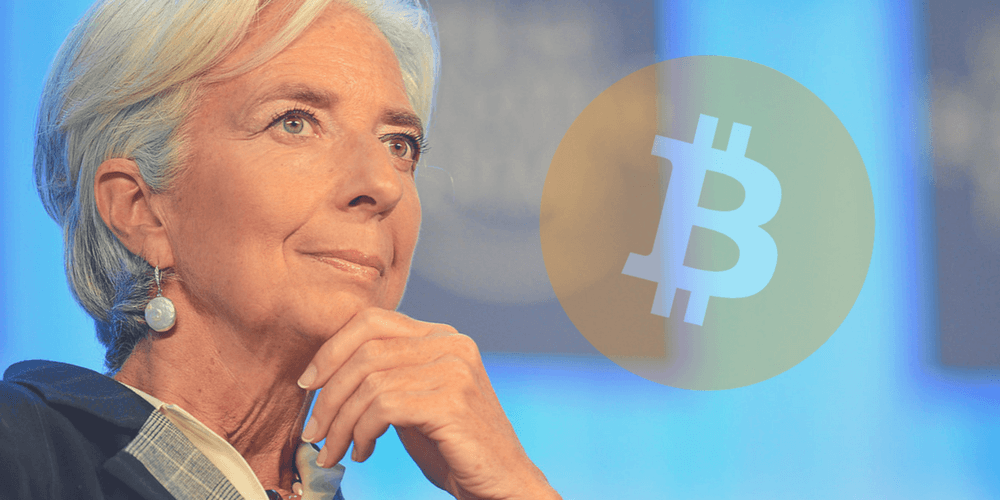
The price of bitcoin saw a boost in value, which coincided with remarks from the chief of the International Monetary Fund (IMF) after she wrote about the benefits the industry can have on the traditional finance system.
In a blog published yesterday, Christine Lagarde, the head of the IMF, wrote that cryptocurrencies enable fast and inexpensive financial transactions, adding that:
“The underlying technology of crypto-assets – distributed ledger technology, or DLT – could help financial markets function more efficiently.”
Following her comments, the price of bitcoin rose above $8,000 again after a tough start to the second quarter. She went on to say that:
“Just as a few technologies that emerged from the dot-com era have transformed our lives, the crypto-assets that survive could have a significant impact on how we save, invest, and pay our bills.”
She added that it was important for policymakers to keep an open mind when considering an even-handed regulatory framework that not only reduces the risks involved but ensures that the nascent sector can continue to grow.
While Lagarde is of the opinion that the tools used with bitcoin and other digital currencies could improve the financial system, she doesn’t think the fintech revolution will eliminate the need for trusted intermediaries such as banks or brokers.
“There is hope, however, that decentralised applications spurred by crypto-assets will lead to a diversification of the financial landscape, a better balance between centralised and decentralised service providers, and a financial ecosystem that is more efficient and potentially more robust in resisting threats,” she said.
Notably, she went on to say that in order for cryptocurrencies to transform the finance system, they must first earn the confidence and support of consumers and authorities. The first step that needs to be reached, Lagarde said, was for a consensus to be reached within the global regulatory community that determines the role that digital currencies will play.
“Understanding the risks that crypto-assets may pose to financial stability is vital if we are to distinguish between real threats and needless fears,” she said.
This latest blog from Lagarde follows on from a post she published in March where she addressed the dark side of the cryptocurrency world. Then she said that the same reason digital currencies are so appealing is also what makes them so dangerous due to the fact that they have an element of anonymity. As a result, she stated that they are a potential new vehicle for money laundering and the financing of terrorism.
Lagarde’s comments come at a time when the sector has been experiencing a tough time. The first three months of the year proved to be the worst first quarter for bitcoin, and its second worst quarter in history, after dropping 50 percent in value. However, following months of a steady decline, mid-April saw the price of the currency surge by $1,000 in 30 minutes bringing relief to many hodlers.

